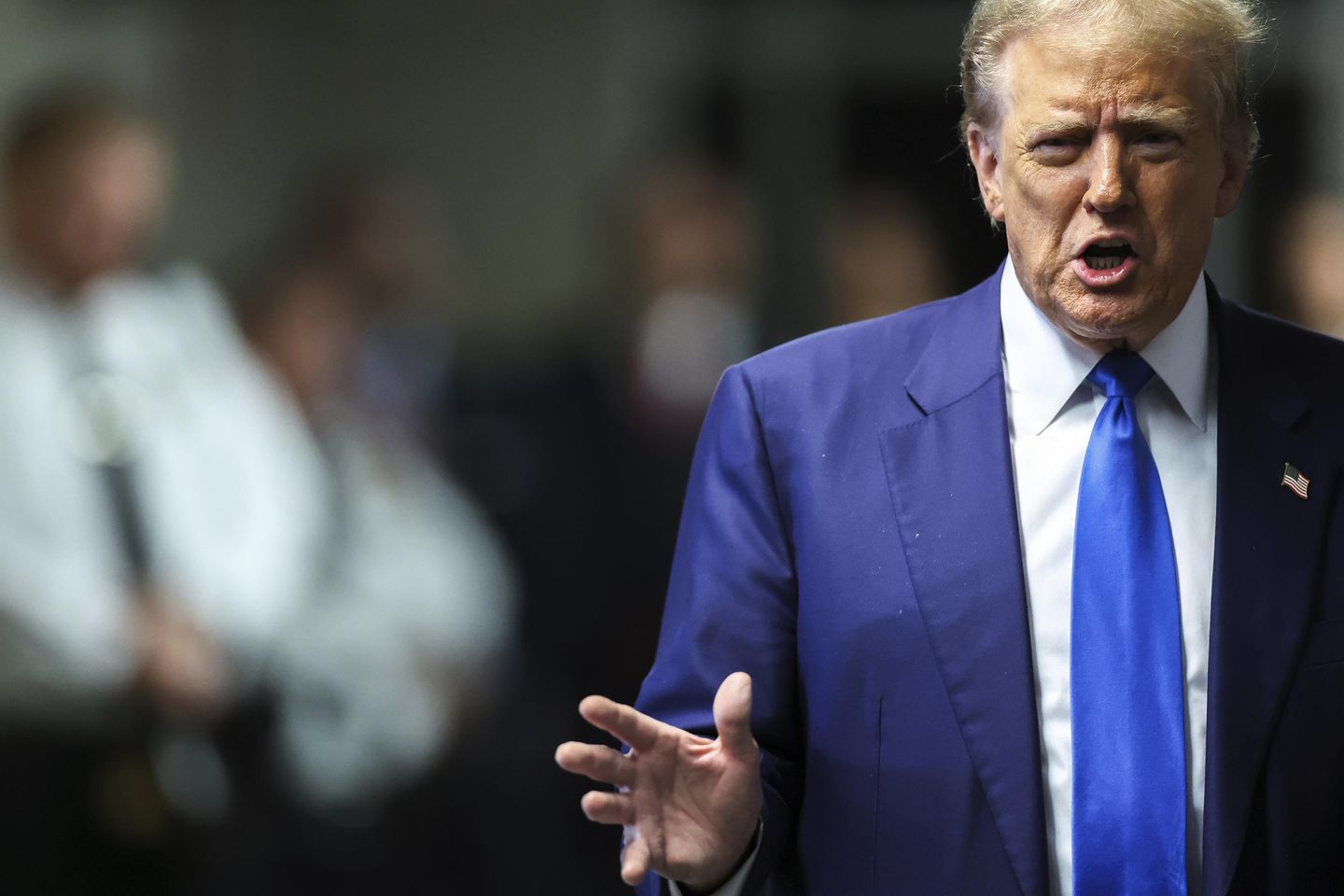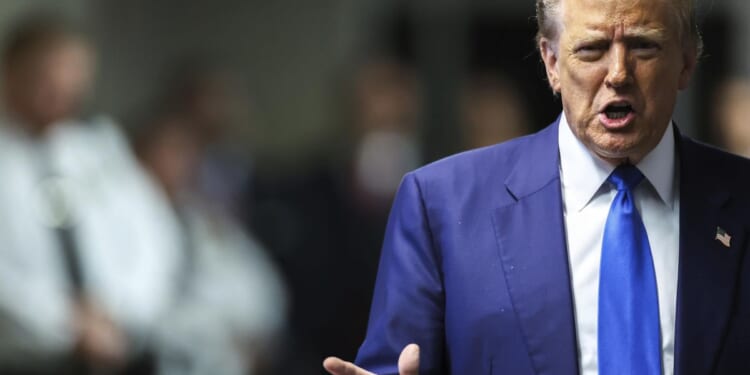
Will Scharf, one of Donald Trump’s lawyers, said the chance that federal prosecutors can hold a trial for the former president before the November election is “quite slim.”
Mr. Scharf, in an interview on The Washington Times’ “Court Watch” podcast, said the prosecutors were too focused on trying to beat the election deadline and failed to anticipate all the legal complications that come with an unprecedented legal campaign against a former president.
“This is an issue the courts are going to have to deal with,” Mr. Scharf said, “and I think the haste with which President Trump was indicted in all these different courts and the speed with which they tried to bring these cases to trial shows they really weren’t paying attention to a lot of these very thorny legal issues that come about when you take the absolutely unprecedented step of indicting a former president.”
One of Mr. Trump’s legal defenses, a claim of “absolute immunity,” is already pending before the Supreme Court with a ruling expected early this summer.
Mr. Scharf, a candidate for Missouri attorney general and a former federal prosecutor, said if the justices accept even part of Mr. Trump’s claims that there is some immunity for some official acts by a president, it could upend cases against Mr. Trump in Georgia, New York, Florida and the District of Columbia.
The lower courts would have to figure out how to apply the justices’ ruling to the facts of each case, which would mean more legal sparring before a trial could begin.
“You would really have to truncate the timeline in a way that would be very unfair to even have a chance of getting that case to trial before November, so I think the chances of that are quite slim,” Mr. Scharf said.
The Georgia case charges Mr. Trump in state court with interfering in the state’s selection of electoral votes. The New York case, where a trial is ongoing in Manhattan, charges Mr. Trump with violating campaign finance laws through hush payments to pornography stars who claimed to have had affairs with Mr. Trump years before he entered politics.
The New York allegations relate to payments made before Mr. Trump‘s presidency. Still, Mr. Scharf left open the possibility that his legal team will use the immunity claim there too, should it prevail at the Supreme Court, saying that “there are official acts implicated by the New York indictment as well.”
The Florida and Washington cases are in federal courts, with prosecutions led by Special Counsel Jack Smith. The Florida case alleges Mr. Trump mishandled classified documents he kept from his time at the White House and the Washington case accuses Mr. Trump of undermining the 2020 election.
Mr. Scharf said any rush to a trial in D.C. as the nation gets closer to the presidential election in November would lead to venue and jury selection concerns in the nation’s capital, where more than 92% of voters in 2020 voted for President Biden and only 5% voted for Mr. Trump.
“If you were to try to force this trial ahead of the November election, that would create profound due process and constitutional rights violations for President Trump,” he said.
Mr. Smith declined to comment for this story but has argued in court that a speedy trial was in the public interest.
Mr. Smith had wanted to start the trial in his 2020 election interference case in March but it has been on hold while the immunity claims are decided.
Mr. Scharf said Mr. Smith’s preferred timeline was so short “it’s crazy.” He said it shows the special counsel was operating on a political timeline.
“With a case of this complexity, the idea that with millions of pages of discovery in both the D.C. and Florida prosecutions, the idea that a case like that could be ready for trial in three months or six months is just patently absurd and doesn’t pass the basic smell test,” Mr. Scharf said.
That is a growing sentiment among Republicans.
Rep. Elise Stefanik, New York Republican, this week asked the Justice Department to launch an ethics probe into Mr. Smith. She said his push for a trial ahead of the November election seems to run afoul of the Justice Department’s manual, which says federal prosecutors “may never select the timing of any action … for the purpose of affecting any election, or for the purpose of giving an advantage or disadvantage to any candidate or political party.”
In proceedings in the Southern District of Florida, where Mr. Trump faces charges of mishandling classified documents, lawyers for the Justice Department have insisted they comply with the Justice Department manual’s public integrity section.
Mr. Scharf said the rush is also unfair to a defendant in a case like this.
“Where you have complex evidence, the defense has a right to examine it fully, to test it, to request more evidence. It is entirely routine for a case much less complex than what we are dealing with to take a while,” he said.
The immunity case before the justices is Trump v. United States.












